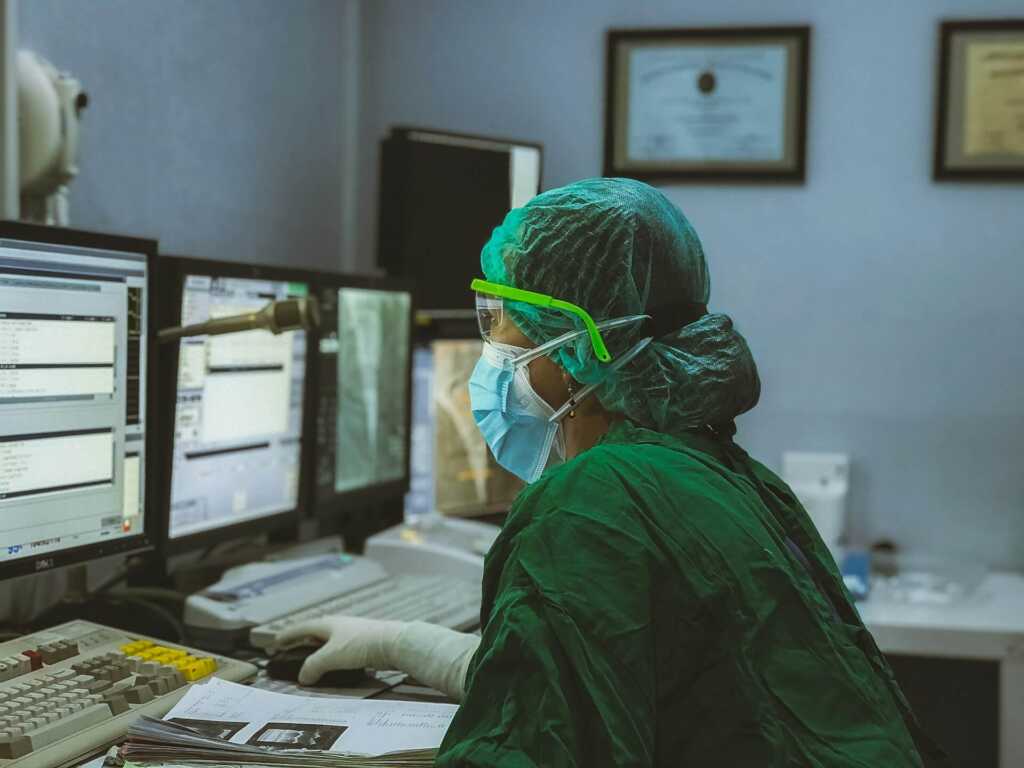Artificial intelligence is rapidly transforming the healthcare industry, offering innovative solutions to longstanding challenges. Even while the practical uses of AI in patient care may not be immediately apparent, the technology is truly changing the way we approach illness identification and individualized treatment regimens.
Whether it’s predicting disease outbreaks, improving patient outcomes, or reducing healthcare costs, AI is proving to be an invaluable tool in the pursuit of better healthcare for all. Join us as we uncover the practical applications of this transformative technology. This post will explore several real-world applications of AI that are already making a significant impact in the sector.

Early Detection Of Diseases
Imaging scans, genetic data, and patient records are all examples of medical data that may be analyzed by AI systems to look for abnormalities or trends that could mean a disease is present. By using an AI-powered symptom checker, an individual or doctor can discover what the core issues might be based on various inputs. This early detection capability holds immense potential to remedy a wide gamut of illnesses before they become more significant or difficult to treat.
For instance, AI algorithms trained on mammogram images have demonstrated higher accuracy than human radiologists in detecting breast cancer. Similarly, AI models can analyze genomic data to predict an individual’s risk of developing certain genetic disorders, enabling preventive measures.
Enhancing Medical Imaging And Diagnostics
As touched on in the previous point, AI is able to automate the analysis and, more importantly, the interpretation of scans like CT scans and MRI images. Algorithms can detect subtle patterns that may be missed by human experts, leading to more accurate diagnoses. Some modern AI imaging tools have been developed to identify signs of cancer, fractures, and other conditions from a selection of images with exceptionally high precision. AI can also assist radiologists by prioritizing critical cases, reducing the risk of missed diagnoses.
Streamlining Medical Record Management
Although this point isn’t as sexy or exciting as early diagnoses or helping physicians cure the various ailments that plague human bodies, it is undoubtedly a core part of the medical industry that assists in streamlining operations. The healthcare industry generates vast amounts of data, including electronic health records (EHRs), clinical notes, and medical imaging.
Managing and extracting insights from this data can be a daunting task. AI systems can streamline medical record management by automating data entry, organizing information, and identifying relevant details. For instance, natural language processing (NLP) algorithms can analyze unstructured clinical notes and extract key information, such as diagnoses, medications, and treatment plans.

Advancements In Drug Development
AI is transforming the drug development process, which has traditionally been time-consuming and costly. Algorithms powered by AI can parse mountains of data, including that from cutting-edge domains like genomics and molecular structures, to find promising new medication candidates and make predictions about their safety and effectiveness.
The clinical trial design may be improved with the help of AI if it could zero in on the best patient demographics and mitigate any negative outcomes. New therapies can be approved more quickly, and patient outcomes can improve if this happens. The drug development process can also be accelerated. AI also holds promise in personalized medicine, enabling the development of tailored therapies based on an individual’s genetic profile.
As AI continues to evolve, its impact on drug development will become increasingly profound. It not only has the potential to save lives but also to reduce the staggering costs associated with traditional drug development processes.





